
Bcharre: The Gem of the Cedars
Nestled in the Kadisha Valley, Bcharre is a picturesque town in Lebanon known for its breathtaking landscapes and rich cultural heritage. This charming town is the birthplace of the famous poet Khalil Gibran, and you can visit the Gibran Museum to see his works and personal artifacts. The museum is housed in a beautiful old monastery and offers a deep insight into Gibran's life and legacy. Bcharre is also a gateway to the magnificent Cedars of God, an ancient forest of cedar trees that date back thousands of years. These iconic trees are a symbol of Lebanon and are recognized as a UNESCO World Heritage Site. Hiking through the cedar forest is a must-do activity, allowing you to connect with nature and enjoy stunning views of the surrounding mountains. The town itself is a blend of traditional Lebanese architecture and modern amenities. Strolling through its streets, you'll find charming stone houses, quaint shops, and local cafes offering delicious Lebanese cuisine. The local hospitality is warm and welcoming, making you feel right at home. For adventure seekers, Bcharre offers plenty of outdoor activities. In the winter, the nearby Cedars Ski Resort attracts skiing and snowboarding enthusiasts. During the warmer months, you can go hiking, mountain biking, or even paragliding to experience the town's natural beauty from a different perspective.
Local tips in Bcharre
- Visit the Gibran Museum early in the day to avoid crowds and have a more intimate experience.
- Wear comfortable shoes for hiking in the Cedars of God forest as the terrain can be uneven.
- Try the local dish 'Kibbeh' at one of the town's traditional Lebanese restaurants.
- If visiting in winter, book your accommodation and ski passes in advance, as the Cedars Ski Resort can get busy.
- For the best views, consider paragliding over the Kadisha Valley in the summer months.
Bcharre: The Gem of the Cedars
Nestled in the Kadisha Valley, Bcharre is a picturesque town in Lebanon known for its breathtaking landscapes and rich cultural heritage. This charming town is the birthplace of the famous poet Khalil Gibran, and you can visit the Gibran Museum to see his works and personal artifacts. The museum is housed in a beautiful old monastery and offers a deep insight into Gibran's life and legacy. Bcharre is also a gateway to the magnificent Cedars of God, an ancient forest of cedar trees that date back thousands of years. These iconic trees are a symbol of Lebanon and are recognized as a UNESCO World Heritage Site. Hiking through the cedar forest is a must-do activity, allowing you to connect with nature and enjoy stunning views of the surrounding mountains. The town itself is a blend of traditional Lebanese architecture and modern amenities. Strolling through its streets, you'll find charming stone houses, quaint shops, and local cafes offering delicious Lebanese cuisine. The local hospitality is warm and welcoming, making you feel right at home. For adventure seekers, Bcharre offers plenty of outdoor activities. In the winter, the nearby Cedars Ski Resort attracts skiing and snowboarding enthusiasts. During the warmer months, you can go hiking, mountain biking, or even paragliding to experience the town's natural beauty from a different perspective.
When is the best time to go to Bcharre?
Iconic landmarks you can’t miss
Cedars of God Bsharri
Discover Lebanon's ancient heart at the Cedars of God: a majestic forest, a UNESCO treasure, and a symbol of national pride.
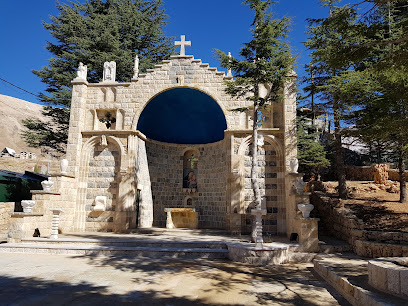
Horsh Ehden
Discover Lebanon's natural treasure: hike through diverse forests, spot rare wildlife, and explore ancient cedars in Horsh Ehden Nature Reserve.
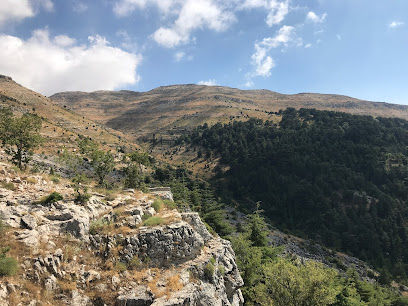
Kahlil Gibran Museum
Discover the art and legacy of Kahlil Gibran at his museum in Bsharri, Lebanon, a journey into the soul of a literary icon.

Monastery of Mar Lishaa
Discover the Monastery of Mar Lishaa in Bsharri: a historic sanctuary offering peace, stunning views, and a glimpse into Lebanon's spiritual heritage.
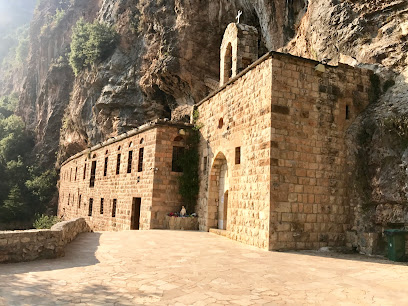
Al Zaytouni - Bcharre
Experience authentic Lebanese cuisine at Al Zaytouni in Bcharre – where every dish tells a story steeped in tradition and local flavor.
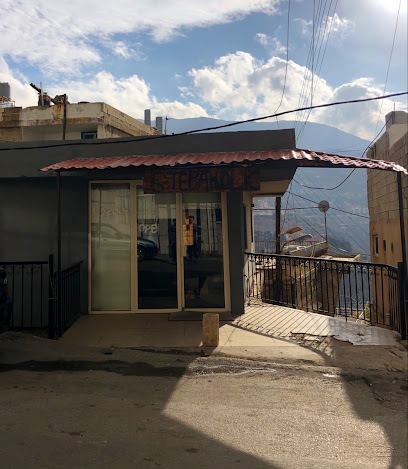
Youssef Beik Karam Statue
Honoring Lebanese hero Youssef Beik Karam in Ehden's vibrant Al Midan, a landmark of courage, culture, and mountain scenery.
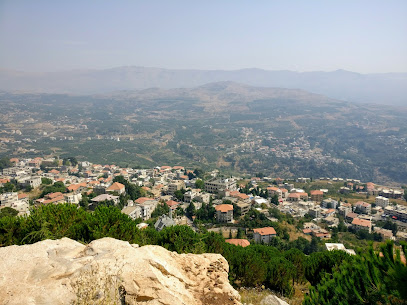
Cedars Bsharri Ski Resort
Experience winter magic at Lebanon's oldest ski resort, surrounded by the majestic Cedars of God in the Bsharri Mountains.
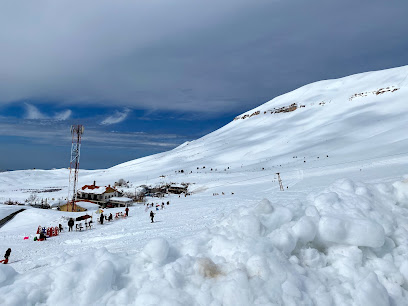
La Jetée
Discover La Jetée in Bsharri: Where history meets breathtaking views of the Qadisha Valley, a Lebanese landmark of serene beauty.
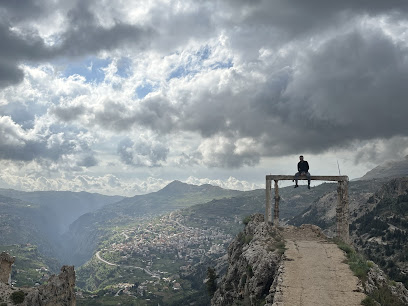
Hotel Chbat
Experience comfort and scenic beauty at Hotel Chbat in Bsharri, Lebanon, your gateway to the Qadisha Valley and the Cedars of God.

Bauhaus Chalets & Motel
Experience comfort and adventure in Bsharri at Bauhaus Chalets & Motel, your gateway to Lebanon's natural beauty and cultural heritage.

Qadisha
Explore the stunning Qadisha Valley, a UNESCO World Heritage Site known for its breathtaking landscapes, ancient monasteries, and rich cultural heritage.
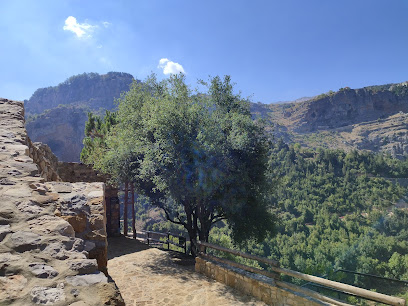
Beit El Qanater
Escape to Beit El Qanater in Bsharri: Experience Lebanese hospitality amidst breathtaking mountain scenery and cultural treasures.
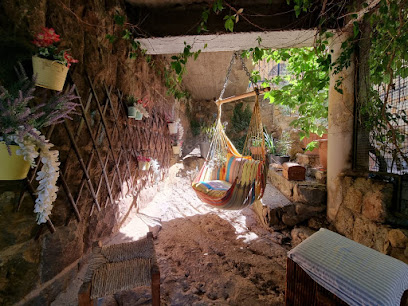
3erzal
Discover the historical charm of 3erzal in Bhouara, Lebanon, a cultural landmark offering a serene and enriching experience for every visitor.
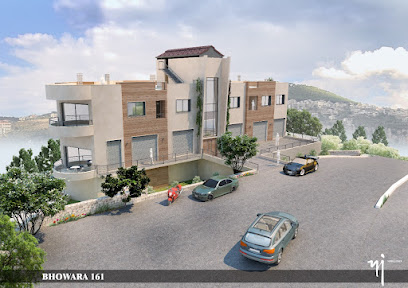
Qasr el Banat, Lebanon
Explore Qasr el Banat, a Roman temple near Deir Al-Ahmar, Lebanon, with possible Phoenician roots, offering a glimpse into ancient religious practices.

Bcharre tunnel
Discover the Bcharre Tunnel: A gateway to Lebanon's history, nature, and the majestic Cedars of God in the heart of Bsharri.
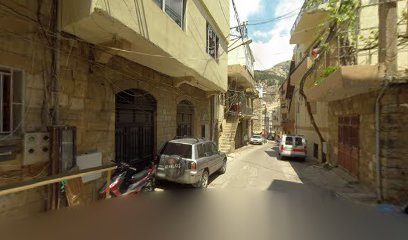
Unmissable attractions to see
Jeita Grotto
Discover the breathtaking beauty of Jeita Grotto, a stunning natural wonder near Beirut with remarkable limestone formations and a rich history.
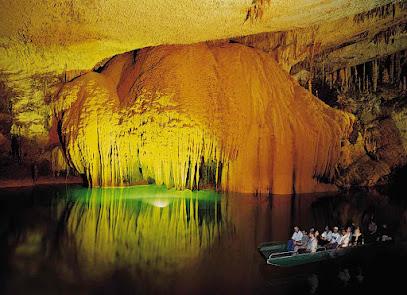
Our Lady of Lebanon بازيليك سيدة لبنان
Discover spiritual serenity and breathtaking views at Our Lady of Lebanon, a renowned Catholic church and tourist attraction in Harissa.
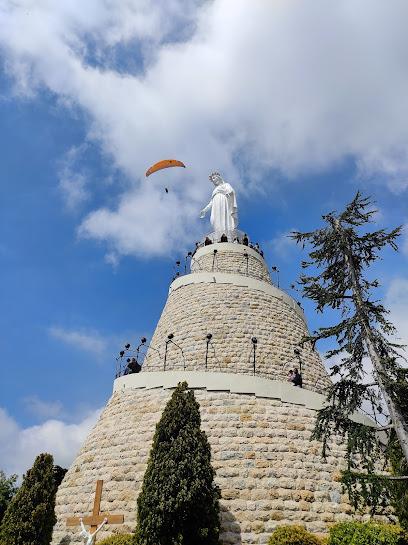
Cedars of God Bsharri
Explore the breathtaking Cedars of God in Bsharri, a UNESCO World Heritage site showcasing ancient trees and stunning natural beauty in Lebanon.
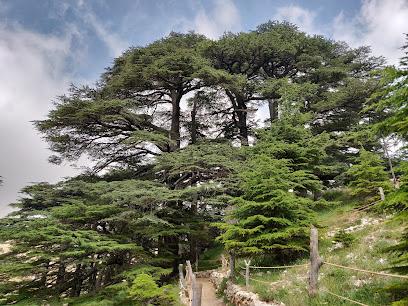
Teleferique du Liban
Experience breathtaking views and thrilling rides at the Teleferique du Liban, Lebanon's iconic mountain cable car attraction.
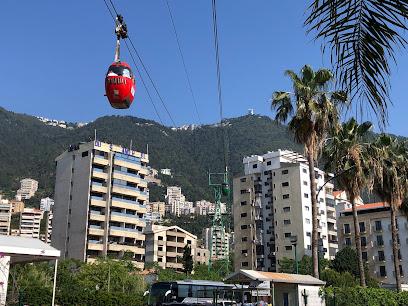
Byblos Citadel
Discover the ancient wonders of Byblos Citadel, a UNESCO World Heritage site reflecting Lebanon's rich history and stunning architecture.
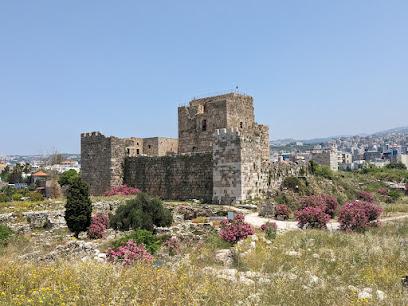
The Old Souq
Discover the Old Souq in Byblos: A vibrant marketplace where history meets local culture, offering a unique shopping and dining experience.
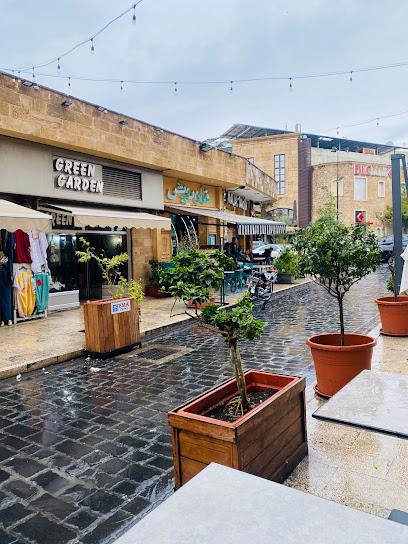
Casino du Liban
Discover the thrill of Casino du Liban in Jounieh, a stunning destination for entertainment, dining, and breathtaking Mediterranean views.
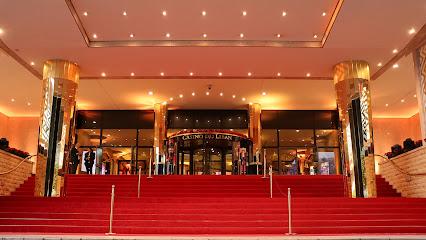
Tripoli Citadel
Discover the historical grandeur and breathtaking views of the Tripoli Citadel, a must-see landmark in Lebanon's captivating coastal city.
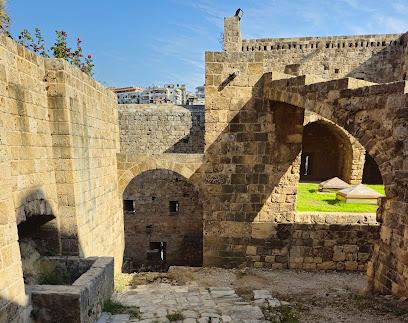
Sayyida Khawla Shrine
Explore the Sayyida Khawla Shrine in Baalbek, a serene spiritual site showcasing intricate architecture and a rich cultural heritage.
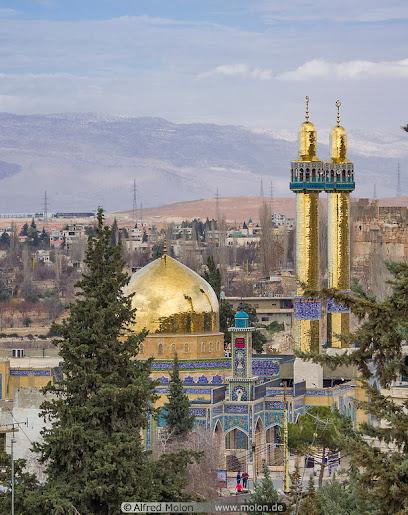
Monastery Saint Maroun
Experience the serene beauty and spiritual heritage of Monastery Saint Maroun in Aannaya, a must-visit pilgrimage site in Lebanon.
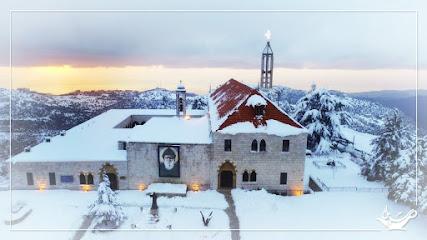
Rachid Karami International Fair by Oscar Niemeyer
Explore the Rachid Karami International Fair in Tripoli, a stunning architectural jewel by Oscar Niemeyer, showcasing Lebanon's vibrant culture and art.
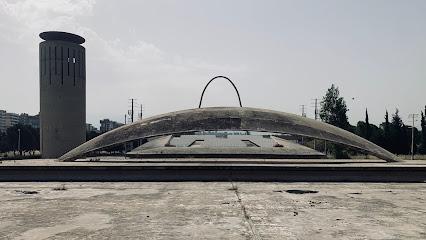
Our Lady of Noorieh Monastery
Experience the spiritual serenity and architectural beauty of Our Lady of Noorieh Monastery in Hamat, Lebanon, a hidden gem for tourists.
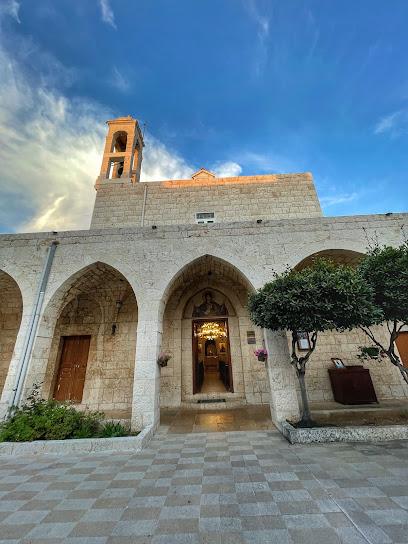
Taynal Mosque
Explore the historic Taynal Mosque in Tripoli, where intricate architecture meets rich cultural heritage, offering a serene escape for all visitors.
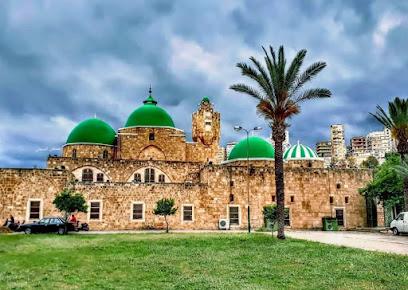
Horsh Ehden
Explore the breathtaking landscapes and rich biodiversity of Horsh Ehden, a national reserve perfect for nature lovers and outdoor adventures in Lebanon.
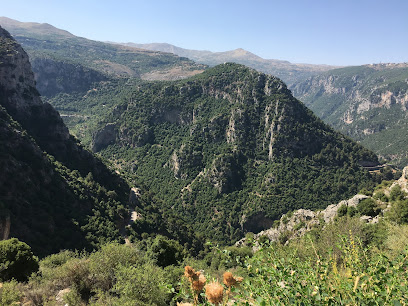
Kahlil Gibran Museum
Discover the Kahlil Gibran Museum in Bsharri, Lebanon, and immerse yourself in the life and art of the legendary poet and philosopher.
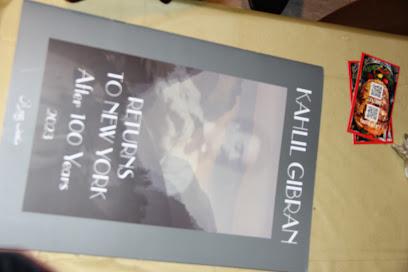
Essential places to dine
Al Ferdaws Restaurant
Experience authentic Lebanese flavors at Al Ferdaws Restaurant in Ehden—where tradition meets breathtaking scenery.
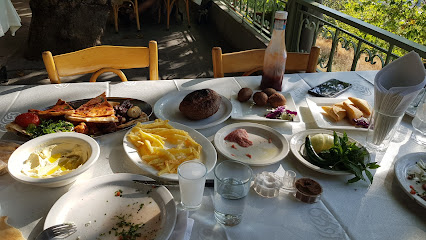
Janet Al Arez
Experience authentic Lebanese cuisine at Janet Al Arez in Cedars - where every meal is a celebration of flavor and culture.
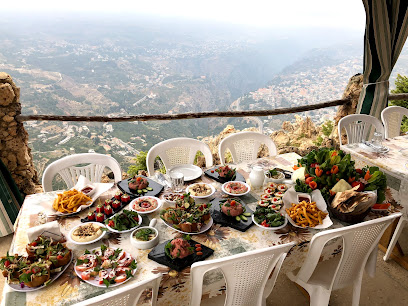
Al Zaytouni - Bcharre
Discover authentic Lebanese flavors at Al Zaytouni in Bcharre – where every dish tells a story steeped in tradition.
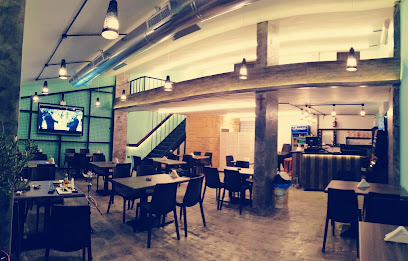
Masa Restaurant
Experience exquisite Lebanese cuisine at Masa Restaurant inside Samar Resort with stunning terrace views and a warm ambiance.
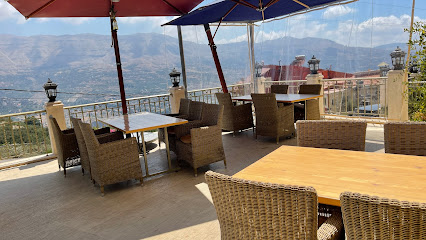
الشلال
Experience authentic Lebanese cuisine with breathtaking views at الشلال in Bsharri.
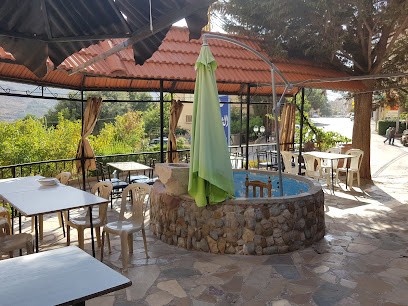
Jisr Al Kamar - Restaurant
Experience authentic Lebanese cuisine amidst breathtaking views at Jisr Al Kamar in Bsharri.
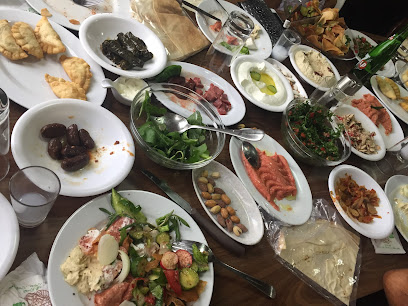
Abou Joseph Restaurant
Experience the rich flavors of authentic Lebanese cuisine at Abou Joseph Restaurant in beautiful Bsharri.
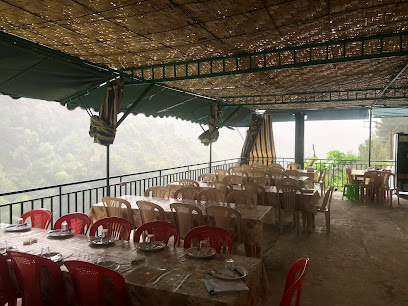
Al Reef Al lubnani restaurant & bungalow الريف اللبناني
Experience authentic Lebanese cuisine at Al Reef Al Lubnani in Bsharri—where tradition meets breathtaking scenery.
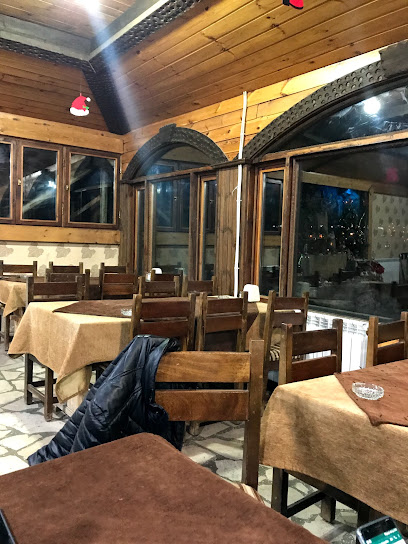
River Rock Restaurant مطعم صخرة النهر
Experience authentic Lebanese flavors at River Rock Restaurant in Bcharry - where every dish tells a story.
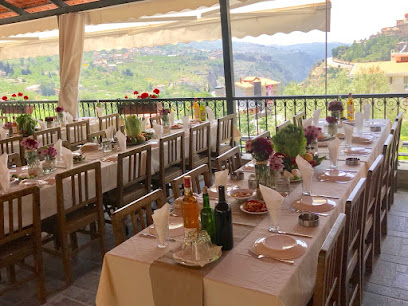
Rtc - Restaurant
Savor traditional Lebanese flavors in the scenic town of Bsharri at Rtc - Restaurant, where every meal tells a story.
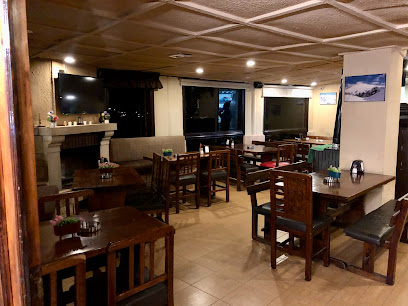
sss
Experience authentic Lebanese cuisine amidst stunning mountain views in Bsharri.
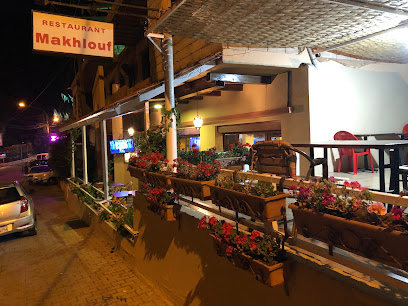
Kawkab restaurant
Discover Kawkab Restaurant: A Culinary Delight in Lebanon Offering Authentic Flavors and Unforgettable Dining Experiences.
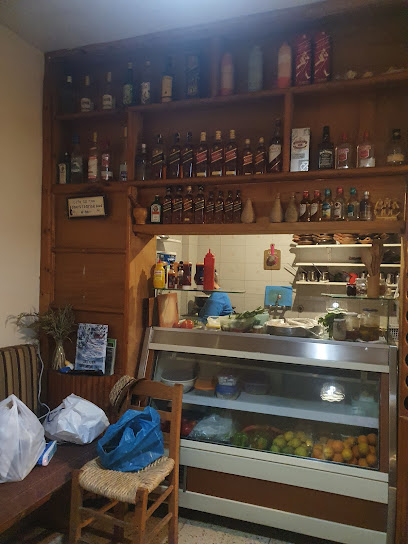
Gharakia Chaccour
Discover authentic Lebanese cuisine at Gharakia Chaccour in Hasroun - A perfect blend of tradition and taste.
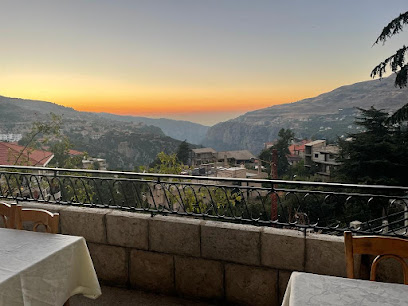
Francis restaurant
Experience authentic Lebanese cuisine at Francis Restaurant in Bsharri, where every dish tells a story of tradition and flavor.
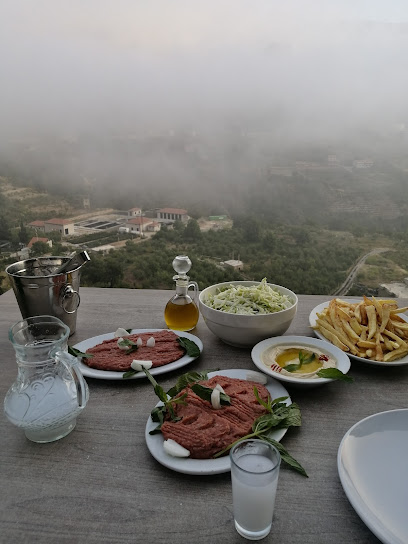
Le Pichet des Cèdres - Restaurant
Experience authentic Lebanese cuisine at Le Pichet des Cèdres in Ariz – where every meal is a celebration of flavor and tradition.
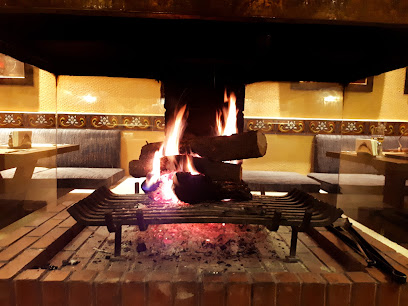
Markets, malls and hidden boutiques
Kahlil Gibran Museum
Discover the artistic and philosophical legacy of Kahlil Gibran at the Kahlil Gibran Museum in Bsharri, a cultural gem in the Lebanese mountains.
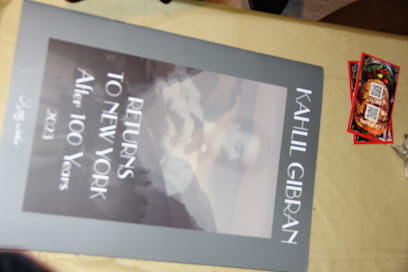
Al Zaytouni - Bcharre
Experience authentic Lebanese flavors at Al Zaytouni in Bcharre, a must-visit restaurant for every food enthusiast exploring Lebanon.
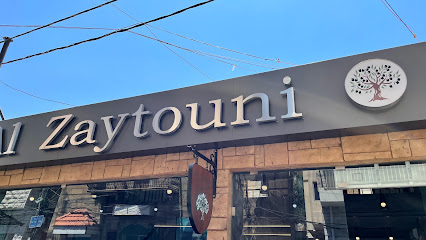
Kangaroo Supermarket
Experience the vibrant local culture at Kangaroo Supermarket in Bsharri, where shopping meets the essence of Lebanese flavors and products.
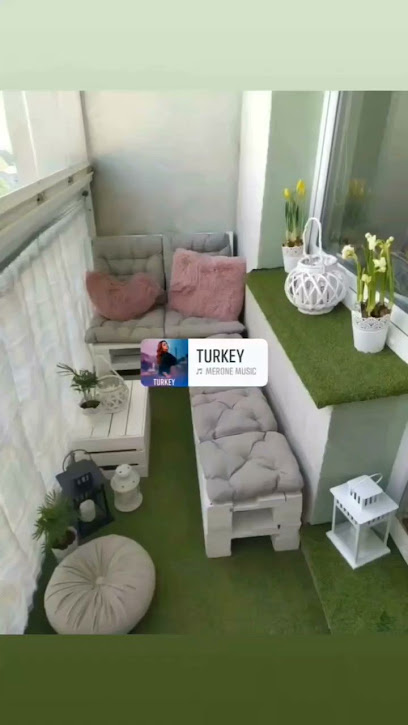
patisserie ôdelices
Discover the exquisite pastries of Patisserie Ôdelices in Bsharri, where every bite is a delightful experience of sweet artistry and flavor.
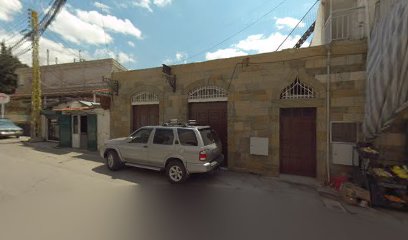
Cedart - Liliane
Explore Cedart - Liliane, the ultimate souvenir store in the Cedars of Lebanon, offering unique treasures that embody the spirit of Lebanese culture.
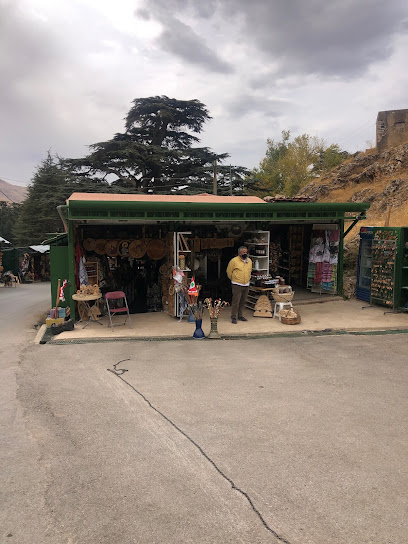
KoVee
Discover the cozy charm of KoVee in Bsharri, where delicious coffee meets a welcoming atmosphere, perfect for every traveler.
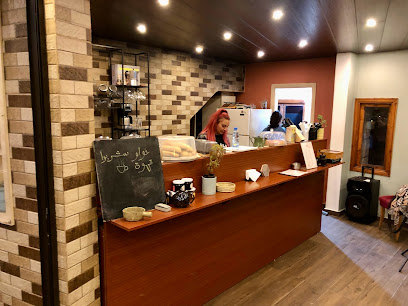
Simona
Explore Bsharri with confidence, knowing Simona Pharmacy is there to meet all your healthcare and wellness needs.

Smart Phone
Explore Bsharri with confidence, thanks to Smart Phone - your reliable cell phone store for all mobile needs in this beautiful Lebanese town.
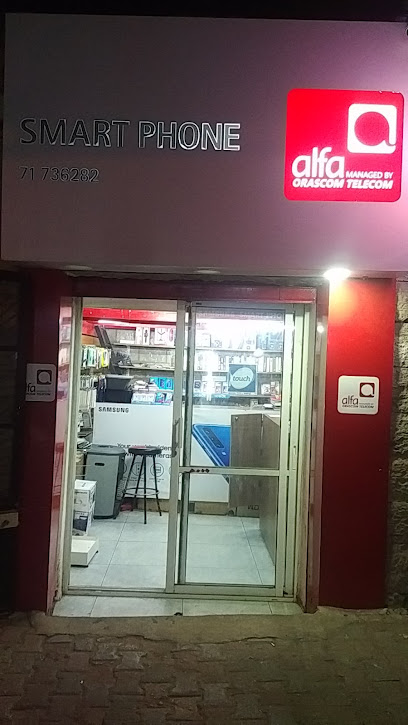
Fertaike - The Lebanese Fork
Explore authentic Lebanese flavors at Fertaike - The Lebanese Fork in Bsharri, offering natural goods that celebrate the region's rich culinary heritage.
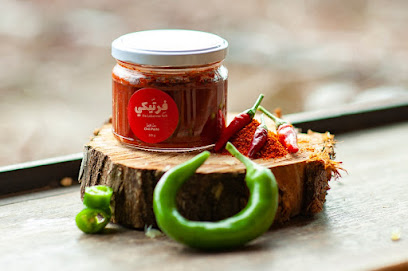
Micky's Cocktail
Discover the sweetest side of Bsharri at Micky's Cocktail, a dessert haven offering delectable treats and a cozy atmosphere.
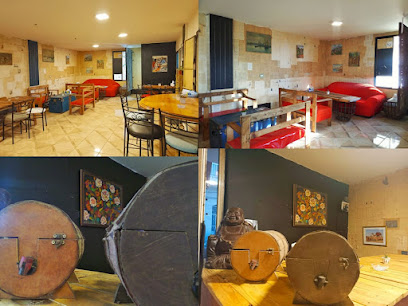
Choc-a-lot bcharre
Discover the sweet indulgence of artisanal chocolates at Choc-a-lot Bcharre, where every bite is a taste of heaven in the heart of Lebanon.
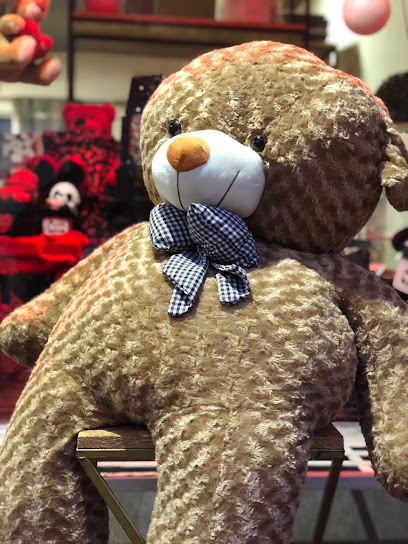
KAYOUSS MARKET
Discover the vibrant KAYOUSS MARKET in Bsharri for a unique shopping experience filled with local flavors and friendly faces.
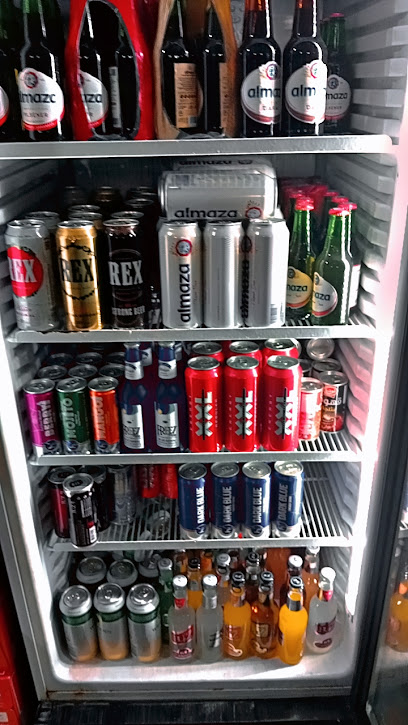
The PorkFather
Discover the rich flavors of Lebanese charcuterie at The PorkFather in Bsharri, a culinary gem nestled in the breathtaking Cedars region.
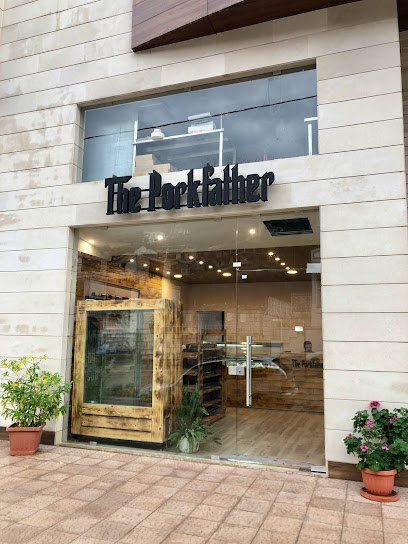
St. Georges - Pharmacy
Explore Bsharri with peace of mind at St. Georges Pharmacy, your trusted source for health and wellness products in Lebanon.
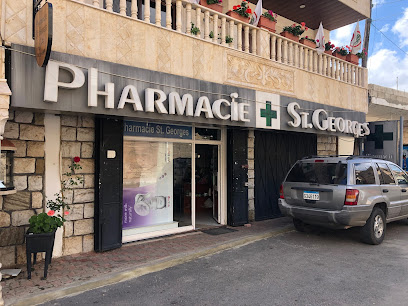
Aliens by zina
Explore the unique fashion offerings at Aliens by Zina, a clothing store in Bsharri that blends modern style with local Lebanese craftsmanship.

Essential bars & hidden hideouts
Masa Restaurant
Experience the best of Lebanese cuisine at Masa Restaurant, nestled in the scenic Samar Resort, where flavor meets breathtaking views.
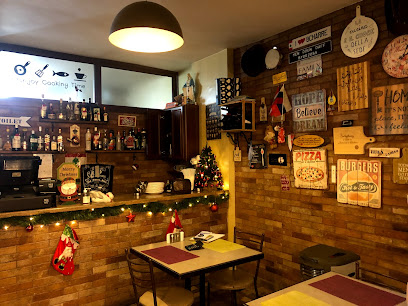
Rtc - Restaurant
Discover the vibrant flavors of Lebanese cuisine at Rtc Restaurant in Bsharri, where every meal is a delightful culinary journey.
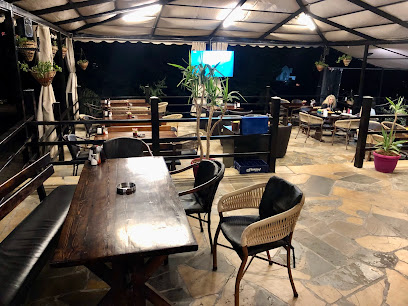
Francis restaurant
Discover the flavors of Lebanon at Francis Restaurant in Bsharri, where traditional cuisine meets stunning mountain views.
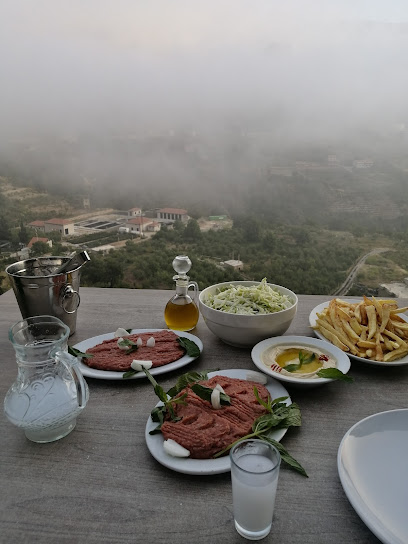
Zoofaa
Discover Zoofaa: A lively pub on Ariz - Baalbeck Rd, blending local culture with vibrant nightlife for an unforgettable experience.
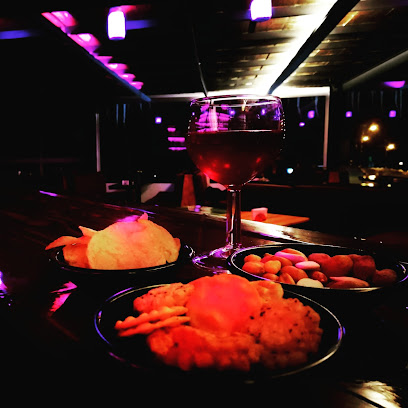
Minus Pub
Discover Minus Pub in Ehden: A lively bar offering a unique drinking experience and a friendly atmosphere perfect for tourists.
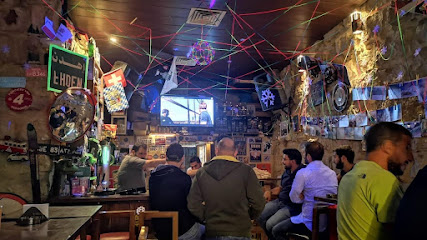
Atlal - Restaurant
Discover the authentic flavors of Lebanon at Atlal, a cozy restaurant in Bsharri, offering a delightful culinary experience with stunning views.
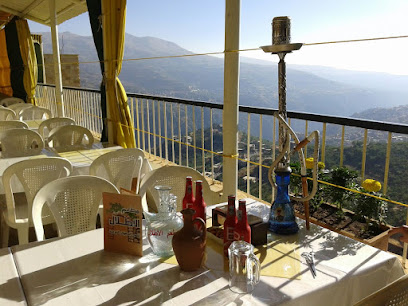
fruitbar
Experience the vibrant nightlife of Bsharri at Fruitbar, a lively pub offering delicious drinks, great music, and a warm atmosphere.
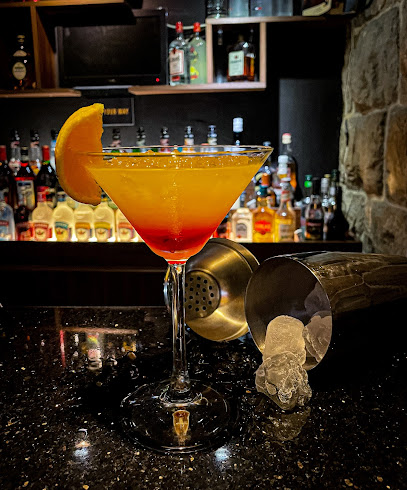
Al naher restaurant
Experience the authentic taste of Lebanon while surrounded by the breathtaking landscapes of Wadi Qadisha at Al Naher Restaurant.
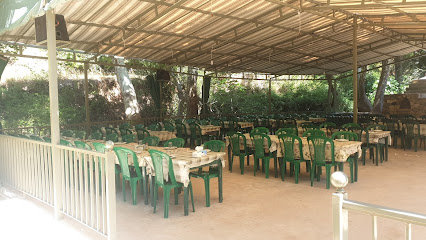
Muse bar
Visit Muse Bar in Bsharri for an unforgettable night filled with vibrant atmosphere, exquisite drinks, and scenic surroundings.
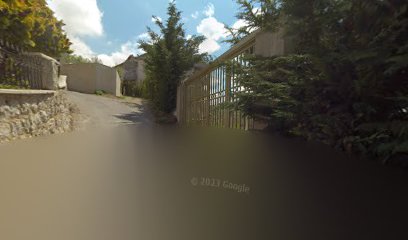
The Alpine Ale
Experience the lively atmosphere and local brews at The Alpine Ale, a perfect pub for tourists in Bsharri.
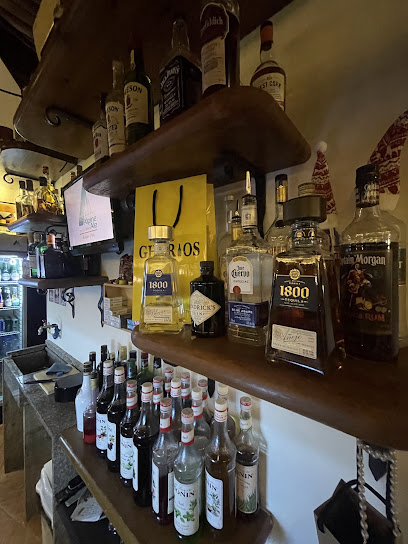
Vibes_lb_
Experience the lively atmosphere and diverse culinary delights at Vibes_lb_ in Bsharri, Lebanon, a perfect spot for food lovers and social gatherings.
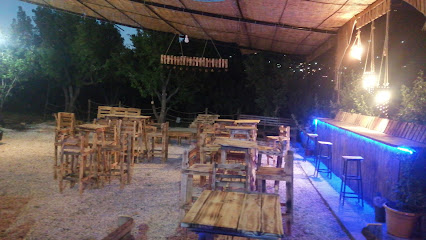
Borea
Discover Borea in Bsharri: a charming bar offering stunning mountain views, a cozy atmosphere, and a taste of local culture.
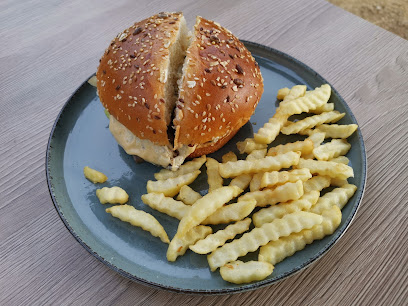
SnooBar
Experience the vibrant nightlife of Bsharri at SnooBar, where great drinks and a lively atmosphere await you.
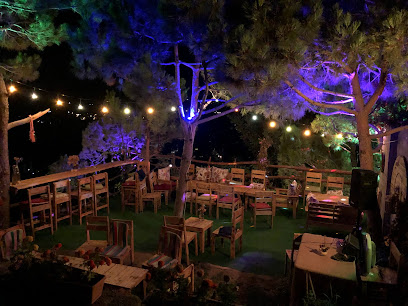
Cave Du Roi
Explore the enchanting Cave Du Roi in Bsharri, where local drinks and a vibrant atmosphere come together near the historic Saint Saba Cathedral.
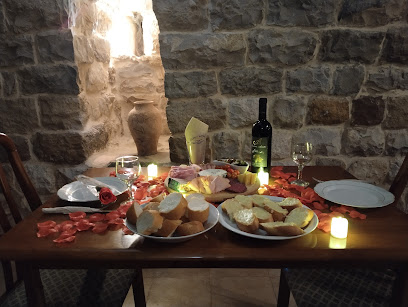
Travel experiences inspired by this city
Explore more travel diariesLocal Phrases
-
- Helloمرحبا
[marhaba] - Goodbyeوداعا
[wada'an] - Yesنعم
[naam] - Noلا
[la] - Please/You're welcomeمن فضلك
[min fadlik] - Thank youشكرا
[shukran] - Excuse me/Sorryعذرا
[aathara] - How are you?كيف حالك؟
[kayfa halak?] - Fine. And you?بخير. وأنت؟
[bikhayr. wa'ant?] - Do you speak English?هل تتحدث الإنجليزية؟
[hal tatahadath al'inglizia?] - I don't understandلا أفهم
[la afham]
- Helloمرحبا
-
- I'd like to see the menu, pleaseأريد أن أرى القائمة، من فضلك
[uriidu an araa alqaima, min fadlik] - I don't eat meatأنا لا أأكل اللحم
[ana la aakul allaham] - Cheers!في صحتك!
[fi sahtik!] - I would like to pay, pleaseأريد أن أدفع، من فضلك
[uriidu an adfa', min fadlik]
- I'd like to see the menu, pleaseأريد أن أرى القائمة، من فضلك
-
- Help!النجدة!
[alnajda!] - Go away!انصرف!
[ansarif!] - Call the Police!اتصل بالشرطة!
[iatisil bialshurta!] - Call a doctor!اتصل بالطبيب!
[iatisil bialtabib!] - I'm lostضاعت الطريق
[da'at altariq] - I'm illأنا مريض
[ana mareed]
- Help!النجدة!
-
- I'd like to buy...أود أن أشتري...
[awadu an ashtari...] - I'm just lookingأنا فقط أتفرج
[ana faqat atafarraj] - How much is it?كم سعره؟
[kam sa'ruh?] - That's too expensiveهذا غالي جدا
[hatha ghali jiddan] - Can you lower the price?هل يمكنك خفض السعر؟
[hal yumkinuka khaafid alsu'ur?]
- I'd like to buy...أود أن أشتري...
-
- What time is it?كم الساعة؟
[kam alsaa'a?] - It's one o'clockالواحدة
[alwahida] - Half past (10)العاشرة والنصف
[al'ashira walinisf] - Morningالصباح
[alsabah] - Afternoonالظهر
[alduhur] - Eveningالمساء
[almasa] - Yesterdayالبارحة
[albariha] - Todayاليوم
[alyawm] - Tomorrowغدا
[ghadan] - 1واحد
[wahid] - 2اثنان
[athnan] - 3ثلاثة
[thalatha] - 4أربعة
[arba'a] - 5خمسة
[khamsa] - 6ستة
[sitta] - 7سبعة
[saba'a] - 8ثمانية
[thamania] - 9تسعة
[tasia'a] - 10عشرة
[ashara]
- What time is it?كم الساعة؟
-
- Where's a/the...?أين...
[ayna...] - What's the address?ما هو العنوان؟
[ma huwa al'anaan?] - Can you show me (on the map)?هل يمكنك أن تريني (على الخريطة)؟
[hal yumkinuka an tureeni (ala alkharita)?] - When's the next (bus)?متى الحافلة القادمة؟
[mata alhafilat alqadima?] - A ticket (to ....)تذكرة (إلى ...)
[tazkirat (ila ...)]
- Where's a/the...?أين...
History of Bcharre
-
Bcharre's roots trace back to the Phoenician civilization, one of the oldest cultures in the region. The Phoenicians, known for their seafaring and trading skills, established settlements across the Mediterranean. Bcharre, nestled in the mountains of northern Lebanon, served as a strategic location for the Phoenicians, providing a hinterland to their coastal cities. Artifacts and inscriptions discovered in the area highlight the influence and presence of this ancient civilization.
-
Bcharre holds a significant place in the history of the Maronite Christians. In the 7th century, Maronite monks fled persecution and sought refuge in the rugged terrain of the Qadisha Valley, which surrounds Bcharre. The town became a bastion of Maronite Christianity, fostering a spiritual and cultural heritage that continues to thrive today. The Maronite patriarchal seat was established in the nearby Monastery of Qozhaya, reinforcing Bcharre's status as a religious center.
-
During the Ottoman Empire's rule over Lebanon, Bcharre experienced both hardship and resilience. The town, like much of the region, was subject to Ottoman taxation and governance. Despite these challenges, Bcharre maintained its cultural and religious identity. The Ottomans allowed a degree of autonomy to the Maronite community, which helped preserve the town's traditions and way of life during centuries of foreign rule.
-
Bcharre is renowned as the birthplace of Khalil Gibran, one of the most celebrated writers and philosophers of the early 20th century. Born in 1883, Gibran's works, including 'The Prophet,' have left an indelible mark on world literature. The Gibran Museum in Bcharre, housed in a former monastery, showcases his manuscripts, drawings, and personal belongings, offering visitors insight into the life and mind of this literary giant. Gibran's legacy continues to attract admirers from around the globe.
-
Bcharre is home to the ancient Cedars of God, a forest of majestic cedar trees that have stood for thousands of years. These trees, mentioned in the Bible and revered by various civilizations, symbolize Lebanon's natural heritage. The Cedars of God were once part of vast forests that covered the region, but now only a small grove remains. This site is protected as a UNESCO World Heritage site, and it remains a powerful symbol of endurance and resilience, much like the town of Bcharre itself.
-
In recent decades, Bcharre has transformed into a vibrant hub for tourism and culture. The town's rich history, stunning landscapes, and cultural landmarks draw visitors from all over the world. Bcharre's local festivals, traditional crafts, and warm hospitality offer a unique glimpse into Lebanese mountain life. Despite modern challenges, the community remains deeply connected to its historical and cultural roots, ensuring that the legacy of Bcharre endures for future generations.
Bcharre Essentials
-
Bcharre is situated in the northern part of Lebanon, in the Qadisha Valley. The nearest international airport is Beirut-Rafic Hariri International Airport, approximately 120 kilometers away. From Beirut, you can rent a car or take a taxi for a scenic drive to Bcharre, which usually takes around 2.5 to 3 hours. Alternatively, you can take a bus from the Charles Helou Bus Station in Beirut to Bcharre, although this option might take longer.
-
Bcharre is a small town, and many of its attractions, including the famous Cedars of God, are within walking distance. Taxis are available for longer trips, and they are relatively inexpensive. Renting a car can also be a good option if you plan to explore the surrounding areas at your own pace. Public buses connect Bcharre to nearby towns and cities, but they might not be as frequent or convenient as taxis.
-
The official currency in Lebanon is the Lebanese Pound (LBP), but US Dollars (USD) are widely accepted. Credit cards are accepted in most hotels, restaurants, and shops in Bcharre, but it is advisable to carry cash, especially for smaller establishments and local markets. ATMs are available in Bcharre, where you can withdraw local currency.
-
Bcharre is generally a safe destination for tourists. However, it is always advisable to exercise standard precautions such as avoiding walking alone at night and keeping an eye on your belongings in crowded areas. There are no specific high-crime areas targeting tourists in Bcharre, but staying vigilant and aware of your surroundings is recommended.
-
In case of emergency, dial 112 for immediate assistance. The local police station and medical facilities are available in Bcharre. It is strongly recommended to have travel insurance that covers medical emergencies. Pharmacies are available in the town where you can purchase over-the-counter medications for minor health issues.
-
Fashion: Do dress modestly, especially when visiting religious sites. Avoid wearing overly revealing clothing. Religion: Do respect local customs and traditions. Always cover your head when entering churches and monasteries. Public Transport: Do be respectful and give up your seat to elderly passengers. Don't eat or drink on public transport. Greetings: Do greet people with a handshake. A slight bow of the head is also a sign of respect. Eating & Drinking: Do try local delicacies and accept food offerings graciously. Don't refuse hospitality, as it is considered impolite.
-
To experience Bcharre like a local, visit the local markets where you can buy fresh produce and traditional Lebanese goods. Engage with locals, as they are often friendly and willing to share stories about the town's history and culture. Don't miss visiting the Gibran Museum, dedicated to the famous Lebanese poet and artist Khalil Gibran. For a unique experience, take a hike in the Qadisha Valley, a UNESCO World Heritage Site, offering breathtaking views and a glimpse into Lebanon's rich history.
Nearby Cities to Bcharre
-
Things To Do in Batroun
-
Things To Do in Baalbek
-
Things To Do in Byblos
-
Things To Do in Jounieh
-
Things To Do in Zahle
-
Things To Do in Broummana
-
Things To Do in Anjar
-
Things To Do in Beirut
-
Things To Do in Aley
-
Things To Do in Deir el Qamar
-
Things To Do in Rashaya
-
Things To Do in Sidon
-
Things To Do in Marjayoun
-
Things To Do in Tyre
-
Things To Do in Safed









